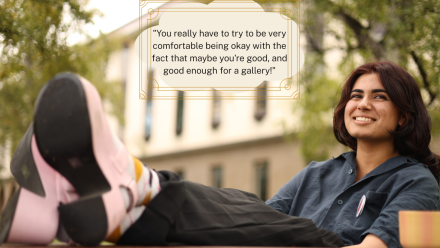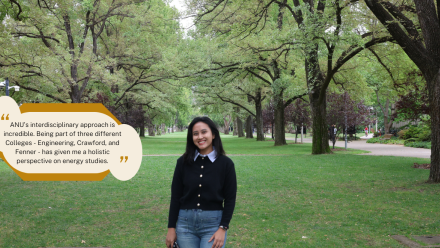Far-right National Rally party unlikely to form government in France
Despite Marine Le Pen's far-right party leading the polls in the first round of the French snap parliamentary elections with 34 per cent of the national vote, an expert from The Australian National University (ANU) says the National Rally party is unlikely to form a majority government.
Exit polls indicate The New Popular Front, a newly created coalition of left-wing parties, is sitting in second place with about 29 per cent of the vote, while President Emmanuel Macron's coalition is trailing in third place with just over 20 per cent, signalling a significant setback for his party.
Dr Romain Fathi, who is in France, said a historically high number of voters have thrown their support behind Le Pen and the far-right in the first round of the elections, indicating a seismic shift in the French peoples’ political mindset and desire for radical change.
“This is by far the largest amount of votes the far-right has received in legislative elections in France since the Second World War,” Dr Fathi said.
“Although the National Rally party seems ahead today, it’s unlikely to be able to form government after the second round of the elections on 7 July. This is because the party’s capacity to attract more voters in the coming days is limited, which has been a recurrent issue for the far-right in past elections at the second round.
“Alliances that will coalesce between political parties this week are likely to result in the National Rally facing a united front against its candidates in most electorates. This will make it very difficult for Marine Le Pen and Jordan Bardella's far-right populist party to win seats at the National Assembly on 7 July.
“While a government of moderates united against both extreme ends of the political spectrum appears to be more plausible than a majority far-right or far-left government, it may not guaranty political stability as diverse coalitions in France don't have a strong track record for stable government.”
Dr Fathi said only 67 per cent of French voters cast their ballot on 30 June, meaning millions of French people could tip the balance one way or another in their electorate in the second and “most crucial” round of elections on 7 July.
He said the coming days will prove extraordinary for French politics as political alliances “will be made and broken”.
“Given France's traumatic experience of the Second World War and the collaboration of its far-right Vichy Government with the Nazis, some French people who did not vote in the first round of the elections may head to the polling booth in the second round to prevent the far-right from winning these legislative elections and forming government,” he said.
“More importantly, most democrats will make unlikely alliances at the local level to prevent the election of far-right MPs. This means that moderate left, centre and moderate right-wing politicians will work with one another in every electorate to decide which candidate is best suited to win in an electorate when facing a far-right candidate.
“Leaders of those moderate parties have strong divisions, but they are united in their will to combat the National Rally. Politicians as diverse as Marine Tondelier, former PM Edouard Philippe, François Bayrou, Raphaël Glucksmann, current PM Gabriel Attal and others have all called for the creation of a ‘Republican Front’ to defeat the National Rally within an hour of the election results being made public.
“In practical terms, it means that where a moderate candidate from the left, the centre or the right is facing a candidate from the far-left or the far-right in an electorate, the moderate candidate who has received the most votes at the first round of the legislative election will represent all other moderates who will unite behind them, thus gaining a considerable amount of votes which in turn means that a National Rally candidate is unlikely to be elected as an MP.
“While this strategy has proven successful in 2002, 2017 and 2022 and may once again work, it does not mean that it will enable France to have a strong and united government, even if the far-right does not get in.”


